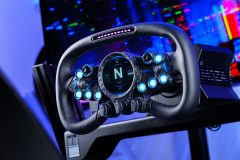In spite of the Galaxy S5 getting a hot welcome, selling some 30% more than the S4 did, analysts are in doubt of the the S5 outselling the S4 in numbers. Both the european and US markets are slowing down whereas the Asian markets, especially India and China, are getting more crowded by locally produced smartphones. And that perceived reduction in smartphone sales is not easily replaced by selling wearables and all kind of accessories and add-ons. Let’s face it: Samsungs’ smartphones makes up for some half of their profit.
Mr. Lee Min-Hee, an analyst at IM Investment and Securities stated, even though Samsung supplies phones from the very basic on, it’s the really smart phones that bring in the money. That makes sense because there cannot be more than 25 dollar profit at a 25 dollar watch. Let alone if you have to pay for components and workforce. An extra source of income might be the wearables which is said to be a 16 billion dollar market in 2016. Samsung already has some entries here and more are announced to come. We’ve covered the Gear 2, the Gear Two Neo and the Gear Fit. The Gear Solo, which is a gear that has it’s own SIM-card, is more or less announced, or leaked, makes a smart wearable: You can run and leave your smartphone at home as I guess you’ll be able to make calls from it, although I still thinks it looks funny to see a man talking to his sleeve…
JP’s opinion:
One thing however is not mentioned in most reports, and that’s the intellectual capital of the company. Not just tying the best people to Samsung with golden chains but also the development and sales of IP, like patents and models that are deposited and granted. One of the netherlands foremost companies was Philips Electronics. At their heyday they employed over 2.000 engineers to develop products, most of them along the company product lines, like the compact cassette and the CD but also their own video-system which made far better VCR’s then what Panasonic delivered. However, Philips was known for for it’s great engineering and lousy marketing. Still, they earned massive amounts of money on all kind of patents. The sales of these patents was far more than the costs. Philips wasn’t the only large company that did so: I recall an engineer telling they were looking into the reason that a bath was so soothing and relaxing. Some thought it might have to do with the release of static energy so they came up with a strip that could be added to your shoes and reduce static energy whilst walking. it never made the consumer but a lot of other products have been designed outside the branche you would expect it to come from.
Samsung most likely will jump that band wagon as well as Google and Apple. protecting designs and products that can be made by other companies and profits to get back to the company. Once again random R&D (thinking outside the box as well as outside the branche) will help companies to find new roads and new sources of profit.
Maybe a simply designed small operating system will be part of that. Even though Tizen is open source it might help Samsung to get better results from the less then flagship smartphones. As do tablets and many things that are connected to a form of internet.
Source / Via


















